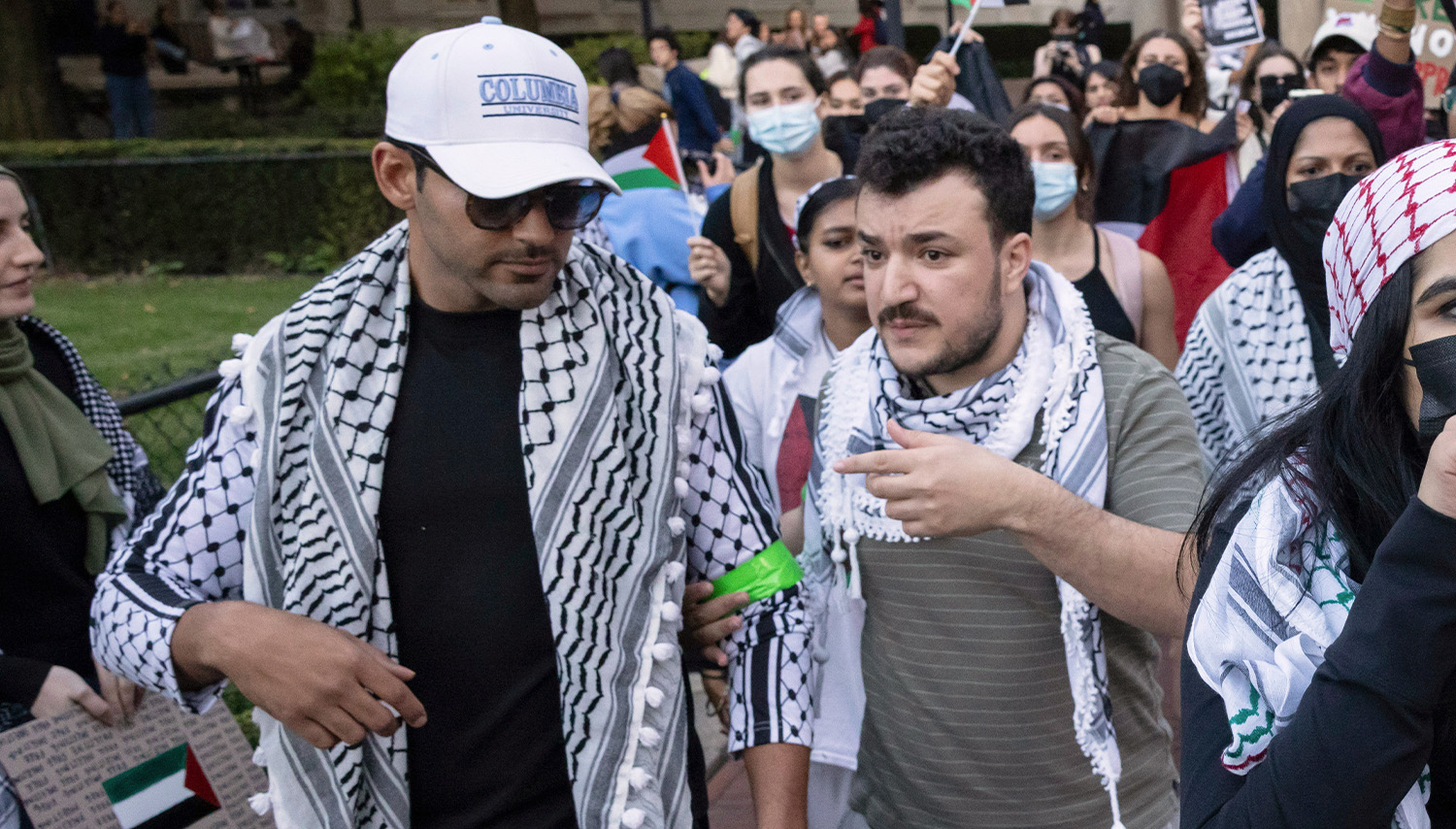Mahmoud Khalil, a prominent figure in anti-Israel protests, found himself at the center of a legal battle with the Trump administration, which sought to deport him on “foreign policy” grounds. After a temporary block on his deportation, Khalil managed to post a $1 bond, though he remains in custody. The government has been given a deadline until Friday morning to appeal the judge’s decision.
A U.S. District Judge, Michael Farbiarz, sided with Khalil, arguing that the government seemed to be enforcing an unconstitutional law. Khalil, a student at Columbia University, became a notable figure after leading protests on his college campus. His case has attracted attention due to the implications for free speech rights and immigration policy.
The Trump administration’s efforts to deport Khalil faced a setback with the judge’s ruling, which temporarily halted the deportation process. Khalil, who holds a green card, has been in a detention facility in Louisiana, sparking debates on his rights as a resident. His situation underscores the tensions between national security concerns and constitutional rights.
Khalil contends that his free speech rights are under threat due to his political activities. The Department of Homeland Security (DHS) challenged his claims, suggesting that Khalil misrepresented information on his visa applications. Specifically, they accused him of not disclosing employment with the Syrian office in Beirut and the United Nations Relief and Works Agency for Palestine Refugees.
The U.S. Secretary of State, Marco Rubio, cited a legal provision from the Immigration and Nationality Act of 1952 to support Khalil’s deportation. According to Rubio, Khalil’s presence in the U.S. could have serious foreign policy repercussions. He accused Khalil of participating in activities that created a hostile environment for Jewish students.
These accusations have fueled debates about the nature of free speech and its limits within the context of national security. Khalil’s supporters argue that his actions are protected under the First Amendment. However, his critics believe that his protests cross a line, posing potential risks to foreign policy interests.
Khalil’s background adds layers to the ongoing legal drama. Born in a Palestinian refugee camp in Syria, he holds Algerian citizenship through his mother. His involvement in the protests has sparked discussions about identity, belonging, and the rights of immigrants.
As the legal proceedings unfold, the case highlights broader issues regarding immigration and the treatment of noncitizens in the U.S. The situation draws in various viewpoints, from those emphasizing national security to advocates defending civil liberties. Khalil’s case could set a precedent for future similar situations.
The protests led by Khalil have been a focal point in the broader conversation about the Middle East conflict and its implications in the U.S. The encampments at Columbia University have been symbolic of this ongoing struggle. The political climate around such protests is charged with differing opinions on the appropriateness and impact of these demonstrations.
Khalil’s legal team argues that the government’s actions are an overreach, infringing on his rights as a green card holder. They assert that his protests, while controversial, fall under protected speech. The court’s decision to temporarily halt his deportation has been welcomed by his supporters as a victory for free speech.
Critics of Khalil argue that his actions go beyond peaceful protest, potentially inciting violence and anti-Semitic sentiments. They believe that the government has a responsibility to address these concerns. The balance between safeguarding free speech and ensuring public safety remains a contentious issue.
The Trump administration has maintained its position, emphasizing the importance of national security and foreign policy considerations. They argue that Khalil’s actions threaten these interests, justifying his removal. This stance reflects a broader policy approach taken during the administration’s tenure.
The decision on Khalil’s future in the U.S. remains pending as the government considers its next steps. The case has become a touchstone for discussions on immigration law and civil liberties. Observers are closely watching the developments, aware of the potential ramifications.
The outcome of this legal battle could influence how similar cases are handled in the future. It raises questions about the extent of government power in matters involving noncitizens. Khalil’s case serves as a reminder of the complexities inherent in balancing individual rights with national interests.
The broader implications of Khalil’s situation are not lost on those following the case. It touches on themes of identity, protest, and the role of government in regulating speech. As the legal process continues, these issues will remain at the forefront of public discourse.
While Khalil’s immediate future is uncertain, the conversations sparked by his case will likely persist. The tension between security and freedom is a recurring theme in American society. Khalil’s story is just one chapter in this ongoing narrative, highlighting the challenges of navigating these complex issues.

Everytime a Judge set free a radical american hater, the Judge should be disbarred and sentenced for 5 years jail time minimum.
Everytime a Judge set free a radical american hater, the Judge should be disbarred and sentenced for 5 years jail time minimum.